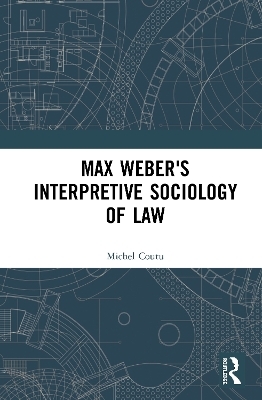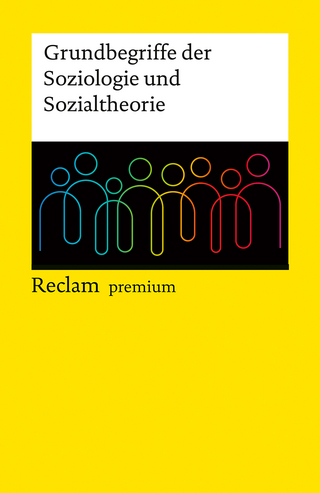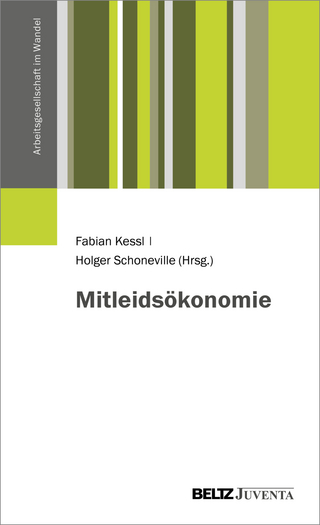
Max Weber's Interpretive Sociology of Law
Seiten
2019
Routledge (Verlag)
978-0-367-34897-7 (ISBN)
Routledge (Verlag)
978-0-367-34897-7 (ISBN)
- Titel z.Zt. nicht lieferbar
- Versandkostenfrei
- Auch auf Rechnung
- Artikel merken
This book presents a clear and precise account of the structure and content of Max Weber’s sociology of law: situating its methodological and epistemological specificity in relation to other approaches to the sociology of law; as well as offering a critical evaluation of Weber’s usefulness for contemporary socio-legal research.
This book presents a clear and precise account of the structure and content of Max Weber's sociology of law: situating its methodological and epistemological specificity in relation to other approaches to the sociology of law; as well as offering a critical evaluation of Weber's usefulness for contemporary socio-legal research. The book is divided into three parts. The first part deals with the methodological foundations of Weber's sociology of law. The second analyses the central theme of this sociology, the rationalisation of law, from the perspective of its internal logical coherence, its empirical validity, and finally its legitimacy. The third part questions the present-day relevance of the Weberian sociology of law for socio-legal research, notably with regard to legal pluralism. Max Weber, it is demonstrated, is not merely a 'founding father' of the sociology of law; rather, his methodology, concepts, and empirical analyses remain highly useful to the further development of work in this area.
This book presents a clear and precise account of the structure and content of Max Weber's sociology of law: situating its methodological and epistemological specificity in relation to other approaches to the sociology of law; as well as offering a critical evaluation of Weber's usefulness for contemporary socio-legal research. The book is divided into three parts. The first part deals with the methodological foundations of Weber's sociology of law. The second analyses the central theme of this sociology, the rationalisation of law, from the perspective of its internal logical coherence, its empirical validity, and finally its legitimacy. The third part questions the present-day relevance of the Weberian sociology of law for socio-legal research, notably with regard to legal pluralism. Max Weber, it is demonstrated, is not merely a 'founding father' of the sociology of law; rather, his methodology, concepts, and empirical analyses remain highly useful to the further development of work in this area.
Michel Coutu is Professor of labour law and legal sociology at the School of Industrial Relations, Université de Montréal, Canada.
Introduction
Part I. Methodological Foundations
Chapter 1. The Starting Point: Max Weber’s Critique of Stammler
Chapter 2. The Ideal-Typical Method
Chapter 3. Rationality as a Fundamental Category of Weberian Sociology
Part II. Rationalisation of Law
Chapter 4. Logical Coherence
Chapter 5. Empirical Validity
Chapter 6: Legitimacy
Part III. Weberian Sociology and Contemporary Law: Some Key Aspects
Chapter 7. Sociology of Law and Jurisprudence
Chapter 8. Legal Pluralism
Chapter 9. Substantive Rationalisation of Law
Conclusion
References
Index
| Erscheinungsdatum | 25.07.2019 |
|---|---|
| Zusatzinfo | 6 Line drawings, black and white |
| Verlagsort | London |
| Sprache | englisch |
| Maße | 156 x 234 mm |
| Gewicht | 580 g |
| Themenwelt | Recht / Steuern ► Allgemeines / Lexika |
| Recht / Steuern ► EU / Internationales Recht | |
| Sozialwissenschaften ► Soziologie ► Allgemeines / Lexika | |
| ISBN-10 | 0-367-34897-7 / 0367348977 |
| ISBN-13 | 978-0-367-34897-7 / 9780367348977 |
| Zustand | Neuware |
| Haben Sie eine Frage zum Produkt? |
Mehr entdecken
aus dem Bereich
aus dem Bereich
Buch | Softcover (2024)
Phillip Reclam (Verlag)
CHF 17,90


